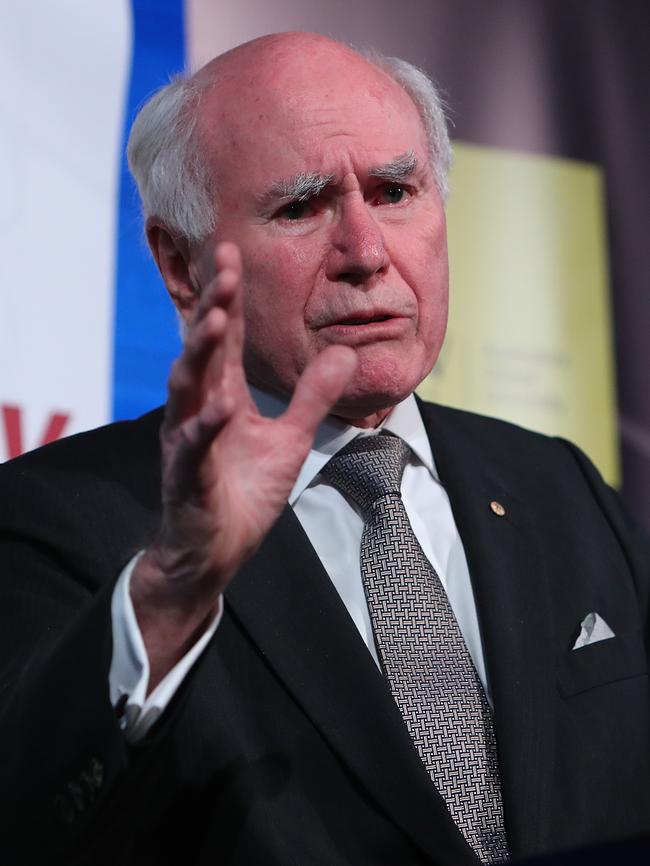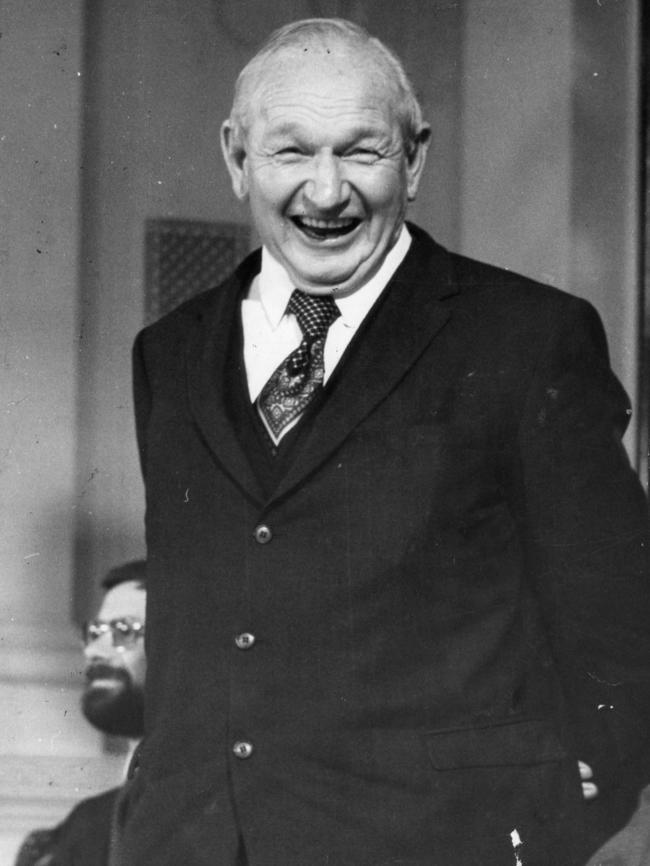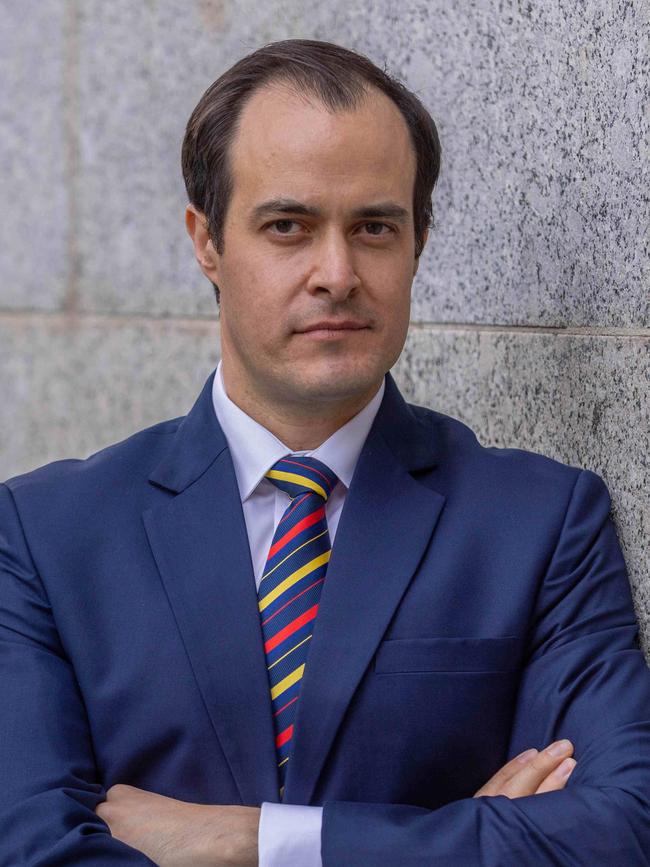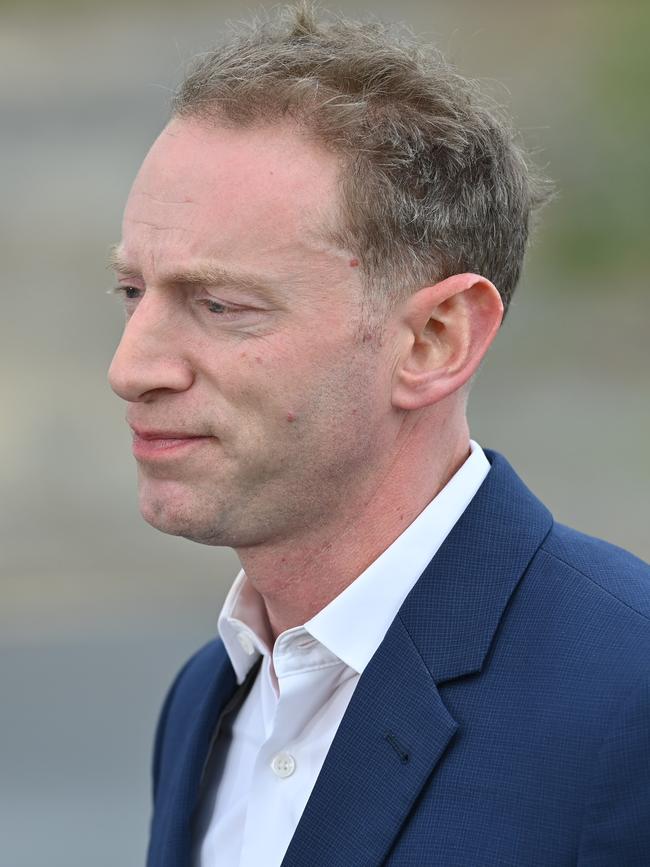Branch-stacking and factional loyalty leave SA Liberals stricken with a cancer they can’t cure | Alexander Downer
Merit is no longer the big ticket to success in the SA Liberals. Loyalty to the factional warlords is, writes Alexander Downer.
Opinion
Don't miss out on the headlines from Opinion. Followed categories will be added to My News.
It surprises me that for a party which is proud of its Christian heritage not many people in the South Australian Liberal Party seem to recall the words of Jesus: “a house divided against itself cannot stand”.
Abraham Lincoln famously used those same words in a speech during the American Civil War and through a very bloody means he managed to reunify the United States.
Ever since Sir Thomas Playford retired from politics, the SA Liberals have been riven by factionalism.
It’s a cancer the party seems incapable of curing.
Usually there are only two factions and they are typically controlled by one or two factional warlords.
These warlords endeavour to get their lieutenants to stack branches and make sure people aligned with them are elected to minor and even major positions within the Party.
It would appear that people are not always elected to positions on merit.
At times, they’re seemingly elected on the basis of their loyalty to warlords.
Internal fragmentation helps explain why the South Australian division of the Liberal Party has been Australia’s least successful division over the last half century.
Robert Menzies was faced with a comparable dilemma after being thrown out of office in 1941.


He pondered how to weld together 18 different political organisations which were broadly of the centre right but were characterised by often intense rivalry.
Ironically, the best example at that time of the unity Menzies wanted was the marriage of liberal and conservative forces in South Australia’s Liberal and Country League.
Menzies managed to pull together liberals and conservatives nationally and create, 80 years ago, the Liberal Party of Australia.
The way he unified those disparate parties and factions is a lesson the South Australian Liberals need to reflect on.
Instead of focusing on the divisions between parties and factions, Menzies developed an inspiring, unifying narrative.
He developed principles around which all of these people could rally. He didn’t concentrate on what divided them.
He concentrated on what they had in common. This was much more than mere opposition to the Curtin and later Chifley governments and their socialisation programs.
Menzies articulated, particularly in his weekly radio broadcasts, his own principles which would form the basis of his election victory in 1949 and the extraordinarily successful foundation of Australian prosperity through the 1950s and 1960s.
These days it’s easy to dismiss the lessons of Menzies or indeed the broader lessons of history
because it all happened a long time ago.
Well, only a fool ignores history. Human behaviour today is much the same as it has been for millennia, it’s only the tools and technology which change.
This is not an argument against intellectual diversity and the concept of a successful political
party being a broad church. Debate within a party is healthy.
In the 1980s and 1990s the Liberal Party federally went through an historic transition. Inspired by the economic revolutions of Ronald Reagan and Margaret Thatcher, the Liberal Party slowly embraced free trade, deregulation, privatisation and competition and a more liberal labour market.
For a time the Party became dangerously factionalised into what became known as wets and dries.
The dries were the economic rationalists and were in effect the insurgents who wanted to replace the old more statist economic model with freer competitive markets.
The wets were the people who wanted to retain much of the then existing economic structure and felt the dries’ agenda would be politically unsalable.
In the end the party came together with the election of the John Howard government in 1996 and the agenda of the dries became a largely unifying agenda within the party.
Today, factions in the SA Liberal Party have a completely different flavour.
They are no longer called wet and dries but moderates and conservatives.


They divide not on economics but on social issues and have particularly gone to war over the issue of abortion. As my mother used to say to me, keep away from that issue.
It will rip the Party apart. And that’s the point.
To be a success, the SA Liberals need to articulate their principles explaining the sort of society the all agree they want.
They then need to talk about the policies they would implement to get there. After all, governments are increasingly regulating and taxing society thereby reducing our freedom to chart our own lives.
It shouldn’t be too hard to present a fresh plan for the State. But to do that, the Liberals will need to get the best available people in the State on to their team not just factional hacks.
And instead of fractional warlords going out and recruiting new members for the purpose of stacking branches to enhance their power, they should turn their minds to the great issues the state has to address if it is to be a truly, liberal society which encourages innovation, entrepreneurship, achievement and success, not a mendicant state.





